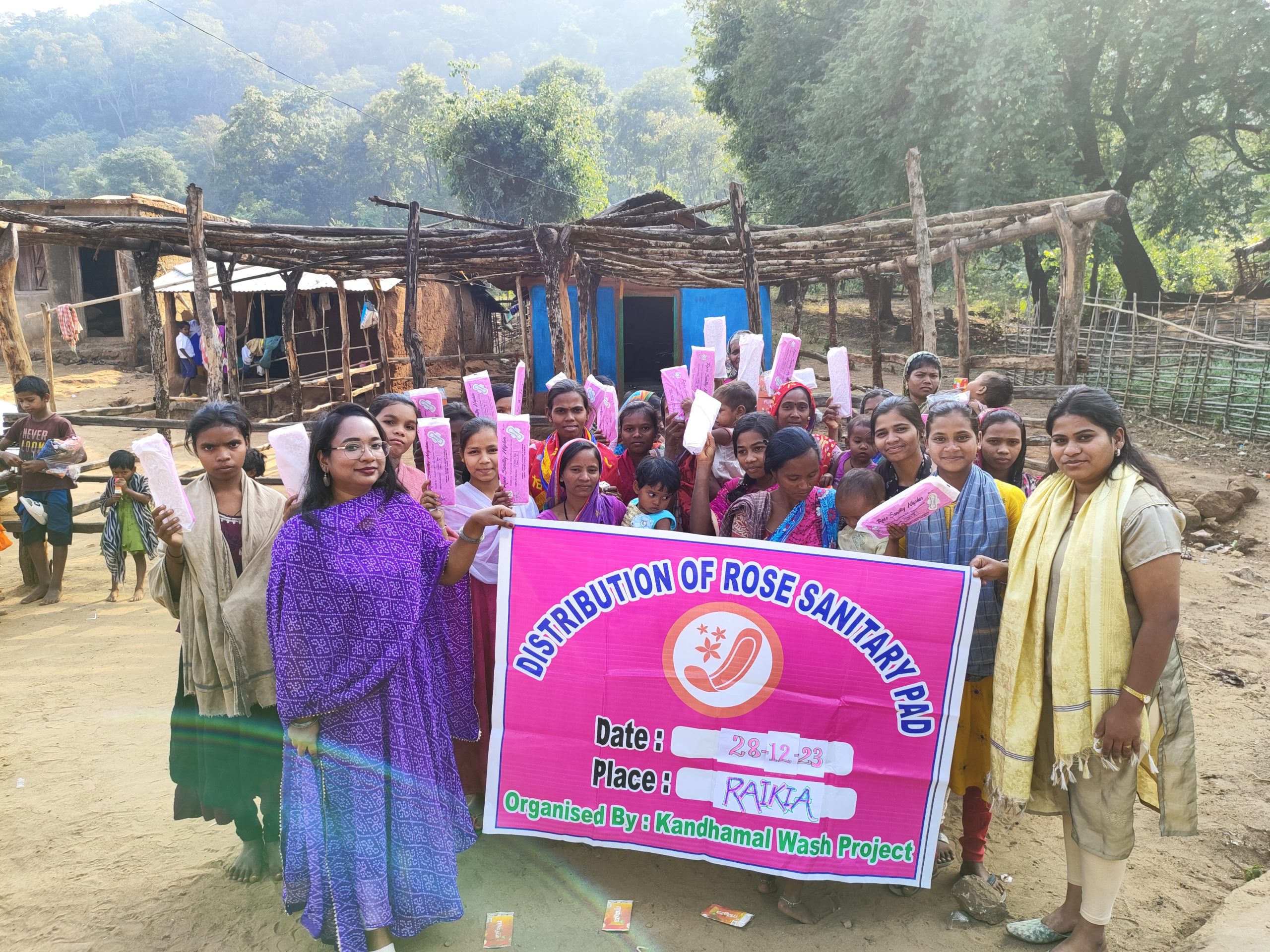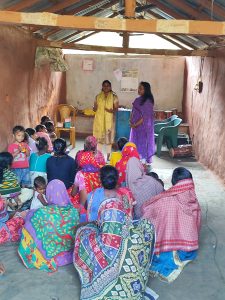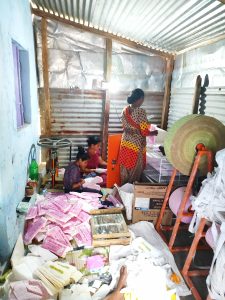In the heart of Odisha, nestled amidst verdant hills and flowing streams, lies the picturesque village of Kandhamal. Yet, beneath the tranquil facade of this idyllic setting lies a silent struggle that has plagued its women for generations: the taboo surrounding menstruation.
In Kandhamal, as is in many communities around the world, menstruation is veiled in secrecy and stigma. Cultural and religious norms dictate that menstruating women and girls must be kept at arm’s length to avoid contaminating others with their supposed impurity. This casts a dark shadow over the lives of women, perpetuating shame, silence, and neglect.
This lack of open discussion and understanding has led to a myriad of challenges for women in Kandhamal, from a lack of access to menstrual hygiene products to limited education about their reproductive health.
But amidst the silence, there are whispers of change. Through grassroots initiatives and community-led efforts, the WASH (Water, Sanitation, and Hygiene) project in Kandhamal led by Nazarene Compassionate Ministries in India, has been working to destigmatize menstruation and ensure that women’s needs are no longer overlooked or neglected.
“Since menstruation has been considered a social taboo for so long, no one wanted to talk about it,” said Pratik Zombade, the project coordinator in Kandhamal. “And so, [through] WASH [we have] been trying to address issues surrounding menstruation with care and love.”
Through the WASH initiative, NCM India confronts menstrual health challenges innovatively. By rallying the support of local government health workers, the local church and WASH staff have gained access and acceptance within local communities. This collaborative effort has led to a series of awareness programs, where local women are not only educated but also trained to spread knowledge amongst their peers, embarking on a transformative journey aimed at empowering local women and dismantling deep-seated societal taboos.
As the church unveils the layers of misinformation and stigma surrounding menstruation, it illuminates pathways to liberation and understanding, challenging age-old norms.
Yet, as the endeavor delved into the fabric of local realities, an unforeseen challenge emerged like a hidden knot in the weave. Despite strides in awareness, the scarcity of high-quality sanitary napkins cast a shadow over the aspirations of the community. Recognizing the pressing need, the local church took an important step by investing in equipment to produce safe and effective sanitary napkins locally.
A new chapter unfurled as the rhythmic hum of machinery resonated through the air, breathing life into dreams long deferred. This new aspect of the project extended beyond mere production; it served as a means of economic empowerment, providing employment opportunities to women from the community through self-help groups.
This project not only fostered financial independence but also instilled a profound sense of pride and ownership in the products crafted by the women involved.
“The Odisha WASH project entrusted our group to produce sanitary napkins for women in our community who have long suffered due to the absence of proper menstrual hygiene products,” explained Sushmita, a member of one of the self-help groups. “With each pad we produce, we not only earn a modest wage but also secure a lifeline for our families. This opportunity has allowed me to support my children’s education and fulfill essential household needs, empowering me to sustain my family with dignity.”
For Sushmita and so many others, this project goes beyond providing a paycheck; it has changed the way they view themselves and the women around them.
“This initiative isn’t just about economic support; it’s about empowerment. It has provided a platform for housewives like me to work and earn, elevating our roles beyond the confines of our homes,” she said.
The work of creating products that will not only allow Sushmita to provide for her family, but also give access to menstrual products to so many women in need, has sparked a new passion in her.
“As I stitch each pad, I’m reminded of the critical importance of menstrual hygiene, a lesson I’m passionate about sharing with others. Through raising awareness about the use of sanitary pads, I’m not just making a product; I’m advocating for women’s health and dignity.”
Pratik has developed a fervent desire to witness the flourishing of the small-scale business initiated within the Rosemary Self-Help Group. He envisions a future where opportunity and empowerment know no bounds.
“Kandhamal currently hosts just one sanitary production company,” Pratik explains, his eyes alight with possibility. “But what if we could nurture its expansion, igniting a ripple effect of empowerment and inspiration across our community? I dare to dream that the Rose Sanitary Napkin, born from our modest efforts, could one day thrive in diverse locales, touching lives far beyond our immediate reach. Imagine the pride we would feel, knowing that our small endeavor has blossomed into something truly impactful, leaving an indelible mark.”
With every carefully crafted sanitary napkin, a powerful symbol of resilience and creativity emerges. Women from Kandhamal, once confined by their circumstances, now proudly stand as artisans shaping their destinies. Where their hands were once limited, they now weave threads of prosperity and hope, creating not just menstrual pads but pathways to dignity and self-reliance.
The women participating in this project are not simply workers; they are the driving force behind a movement that challenges the stigma surrounding menstrual health and advocates fiercely for women’s rights. Through their dedication and determination, they are rewriting the narrative of empowerment and transforming their communities for the better.
-article by Sharon Tigga






